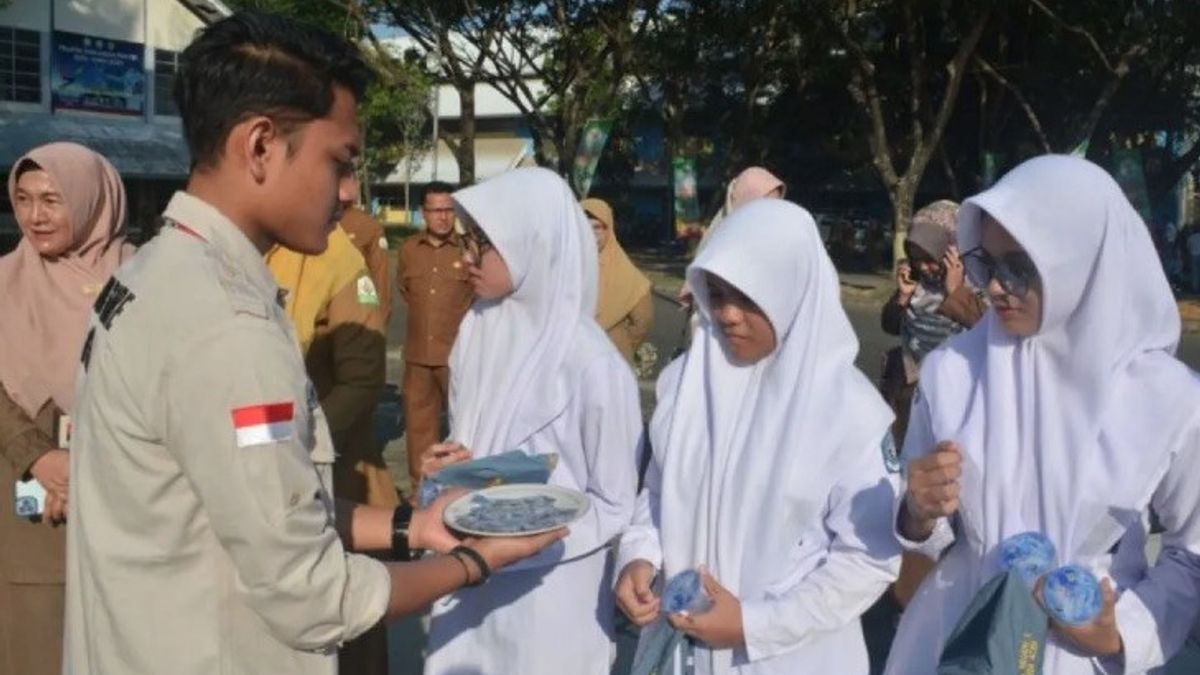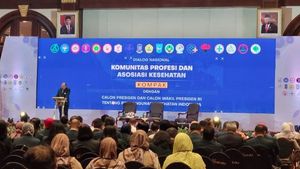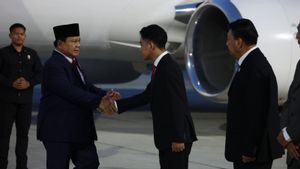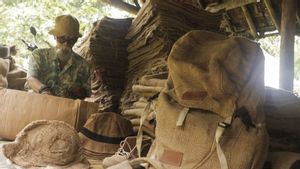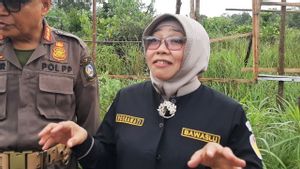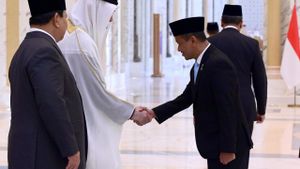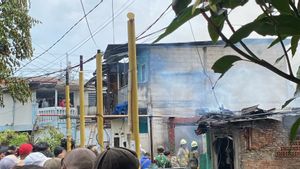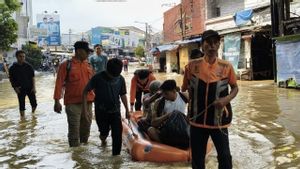JAKARTA Video of the student council chairman and several members raiding make-up and skincare schools has gone viral on social media. Not only conducting raids, the student council chairman also damaged make-up and skin care products, including sunscreen.
The video was uploaded to the TikTok @nadtawang account and immediately became the public's attention. In the uploaded video, several OSIS members are seen disposing of the sunscreen, there are also people who erode solid powder using scissors until it is destroyed.
This action drew criticism from many parties. The raid carried out by the school was said to encourage students to be redundant because they threw away something that could still be used.
On the other hand, this action also drew concern from among educators. Extortion to damaging students' personal belongings reflects that the world of education in Indonesia is still trapped in non-substantial discipline.
Raids are present in the world of education with the aim of providing a disciplined and deterrent effect on students who commit violations. Raids at schools have actually occurred decades ago. Therefore, said the raids are now not a foreign thing, especially for students.
According to the Big Indonesian Dictionary (KBBI) raids are the arrests of a crowd, raids of criminals that are dangerous for security and simultaneous examination.
But why does the term raid appear in the world of education? What are the important points of raids and how important is the raid?
Raids at schools are usually carried out suddenly, so students do not have preparations to temporarily hide items raided.
In ancient times, raids were usually carried out by confiscation of perfume, cigarettes, liquor, and other crime tools. Along with the development of the times, raids in the world of education have grown into cell phone raids to beauty products.
As has happened recently, which has gone viral on social media. The raid reaped pros and cons. For those who support, think that school is a place of study that does not require skincare products, so conducting raids on these products is reasonable.
But not a few also regretted the incident, because it was considered a waste. After all, skincare products belong to a person whose reason should not just be damaged.
This incident was also regretted by Feriyansyah as the Head of Education Research and Development for the Education Association and Teachers (P2G). According to Feriyansyah, the majority of schools in Indonesia are still trapped in non-substantial discipline. He emphasized that damage to skincare and up-up products does not have urgency related to student academics. Feriyansyah also considers that discipline in most schools in Indonesia tends to be paramilitary.
"So our schools tend to be like paramilitary, all of which must be the same, must be uniform. What is their background for doing that? Do not let school rules violate private matters, which are actually protected," Feriyansyah said while talking to VOI.
"Indeed, public schools, so everything must be regulated. But, what is the urgency of destroying personal goods? Not everything must be done with destruction, especially since there is an economic impact there because students have to buy again, right?" he added.
The pattern of discipline in schools by means of violence or raids often occurs in the world of education. For the recent case, Feriyansyah assessed that schools should provide clear rules regarding the use of beauty products and skincare that students may use. Moreover, in videos uploaded, students are teenagers, who sometimes psychologically need these products.
"For the use of make-up, it must be clear, if it is too terror, it is not allowed. For sunscreen, it is important, it is needed," he explained.
Furthermore, Feriyansyah assessed that the pattern of discipline that tends to be carried out by violence or destruction occurs because in the world of education in Indonesia students are often ignored by their rights. Feriyansyah said that so far students in schools are more often required regarding obligations, but it is not prioritized to fulfill their rights.
Feriyansyah said, when children understand the rights of themselves and others, they will automatically know their obligations as students.
Such a disciplinary pattern often occurs in schools, including physical punishment. Even though school rules should also not limit our basic rights as human beings. Public domains and private domains should be separated," said Feriyansyah again.
The task of human rights of a child is not cared for here. We have never taught any children's rights, he added.
SEE ALSO:
Feriyansyah hopes that in the future, the pattern of discipline of students in schools will no longer use violence or damage to personal goods. He hopes that the disciplinary process will be humane and there will be no hegemony between the authorities, in this case, the OSIS chairman, and the students.
"The form of punishment is not always effective to provide a deterrent effect. There needs to be a humanist approach and build awareness about the situation," Feriansyah emphasized.
The English, Chinese, Japanese, Arabic, and French versions are automatically generated by the AI. So there may still be inaccuracies in translating, please always see Indonesian as our main language. (system supported by DigitalSiber.id)
